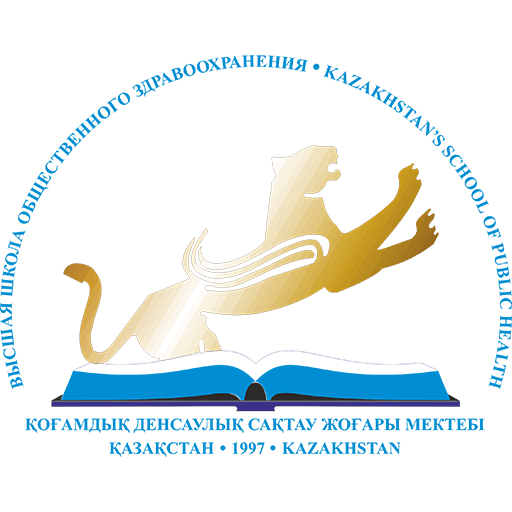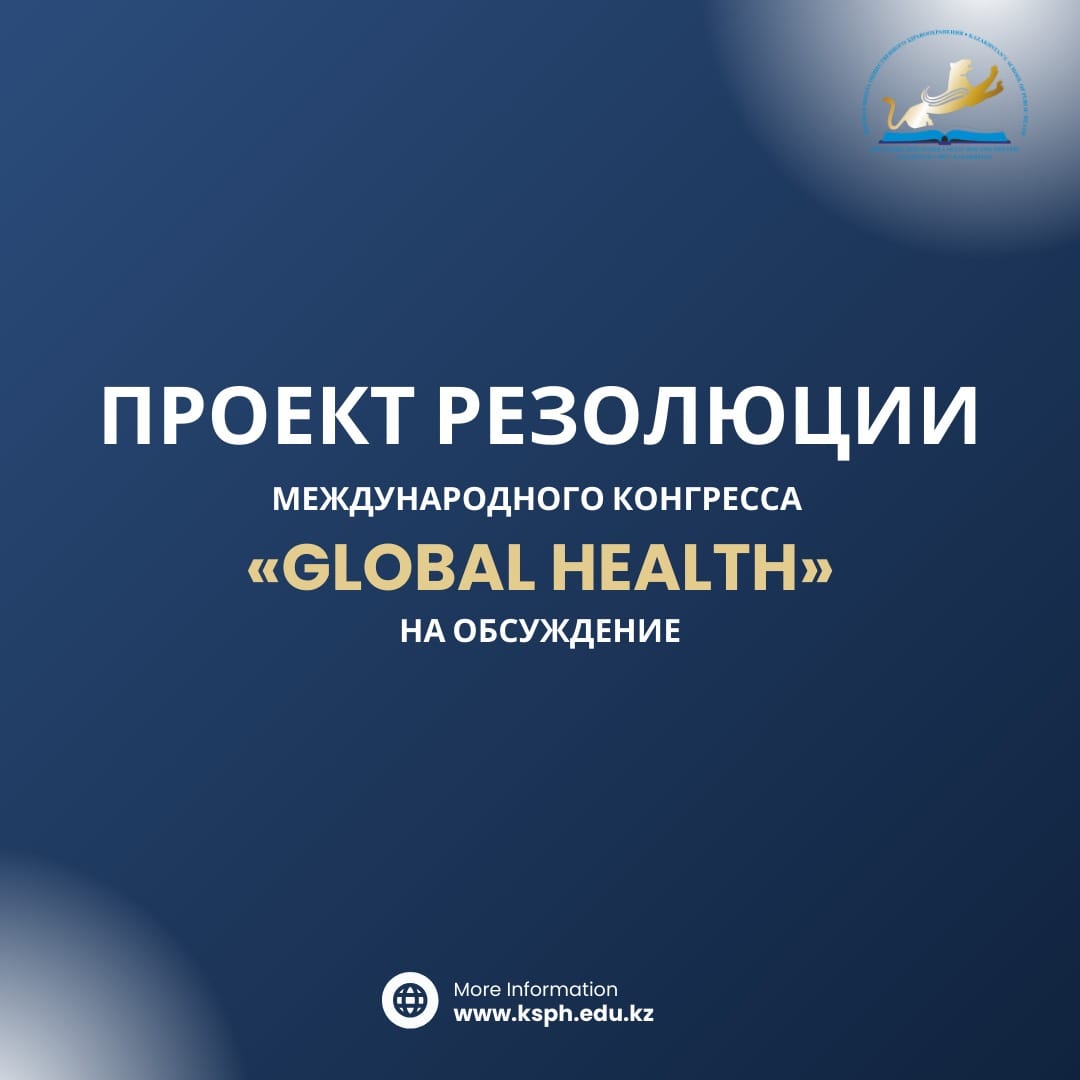On December 5-7, 2024, the International Congress “Global Health” was held in Almaty, organized by the Kazakhstan’s Medical University “KSPH” together with the Association of Management and Public Health, the Association of Clinics in Almaty, the Union of Simulation Training and Independent Expertise, as well as the International Center AMC TELEDOC International Pte.
The Congress was held with the participation of leading scientists and specialists of scientific and educational organizations of the Republic of Kazakhstan, government agencies, the Social Health Insurance Fund, as well as experts-leaders of healthcare in the far (WHO, Republic of Lithuania, Spain, USA) and near (Kyrgyz Republic, Republic of Uzbekistan, Russian Federation, Ukraine) abroad.
The plenary part of the event was attended by distinguished guests and leading experts, including Academician of the National Academy of Sciences of the Republic of Kazakhstan V.N. Lokshin, Honored Worker of Azerbaijan, Professor E.B. Gelfgat, representatives of WHO/Europe: Dr. Moredreck Chibi (Copenhagen), Thanos Myloneros (Athens), consultant of the European Union Professor Juozas Galdikas, etc.
The total coverage of the registered participants of the Congress amounted to more than 700 people.
The Congress program consisted of a plenary session and three sections: “Public Health Management”, “Clinical Medicine”, “Nursing and School Medicine”.
The Congress participants unanimously state that during the post-pandemic period, attention to continuous professional development, the topic of public health and healthcare, social and economic aspects of healthcare, digital transformation and the widespread penetration of artificial intelligence has increased significantly.
The Congress participants unanimously call on all stakeholders to open dialogue, exchange of views in order to ensure common engagement and ensure that all stakeholders are covered and heard when making decisions important to society.
The importance of the unity of terminology in matters of public health protection is of paramount importance, therefore, it is proposed to adopt an internationally recognized formulation of professional terms for further basic use in research, educational and applied purposes.:
– Public health is a state of well–being, safety and physical, psychological and social well-being of the whole society. It depends on various factors, including people’s physical health, access to medical care, environmental quality, social equality and justice, education, economic development and many other aspects.
– Public health includes the organization and management of the public health service, the development and implementation of preventive measures and programs, monitoring and evaluation of public health, research.
– Healthcare management is the science and practice of managing, regulating and controlling financial, labor and material resources of healthcare.
Following the discussion, the participants of the Congress state that the low efficiency of the domestic health care system may be due to the following reasons:
– insufficient government funding and low investment attractiveness of the industry, which leads to limited availability of medical care;
– problems with the quality of medical services caused, in turn, by the imperfection of educational programs, a drop in the quality of educational services and low demand for quality from stakeholders;
– the growing dissatisfaction of consumers of medical services in connection with the limitation of the volume and quality of medical care;
– insufficient literacy of the population in matters of health and disease prevention.
The participants of the Congress note that these and other problems form serious challenges and barriers for the healthcare system of Kazakhstan.
In this regard, the Congress participants recommend to take a number of priority measures to increase the potential of the healthcare system in the current conditions:
- to revise the nomenclature of medical specialties based on the clarification of the concepts in the national professional terminology: “public health”, “public health”, “health management”;
- to systematize, for the purpose of general unification, the functionality and competencies of specialists within the concepts of “public health”, “public health”, “health management”;
- competently build the process of personnel training in the following specialties: “Public Health” and “Health Management”;
- to analyze and update educational programs on a regular basis, taking into account modern medical achievements and technologies;
- to introduce the compulsory discipline “Quality of medical care” into educational programs at all levels in graduate courses with a volume of at least 90 credits;
- to transfer the financial resources of the organization to the medical workers, themselves to pay for their own professional development;
- to carry out an inventory of the regulatory and legal framework of healthcare, eliminate excessive regulation, while maintaining compliance with the rule of law in the provision of medical services;
- It is necessary to involve patients and the public in solving issues related to the provision of medical care;
- to intensify the efforts and attention of the administration and teams on innovations in the field of health protection, especially artificial intelligence, taking into account the ethical and organizational aspects of this problem;
- to ensure high efficiency of corporate governance in medical organizations, and the improvement of the quality of corporate governance should be facilitated by the full-fledged creation of structural management bodies and the introduction of fundamental principles of corporate governance: transparency, accountability, fairness, responsibility;
to continue the introduction of professional liability insurance for medical workers, which will improve the status of medical workers and ensure the protection of patients’ rights, improving the quality of medical care.


